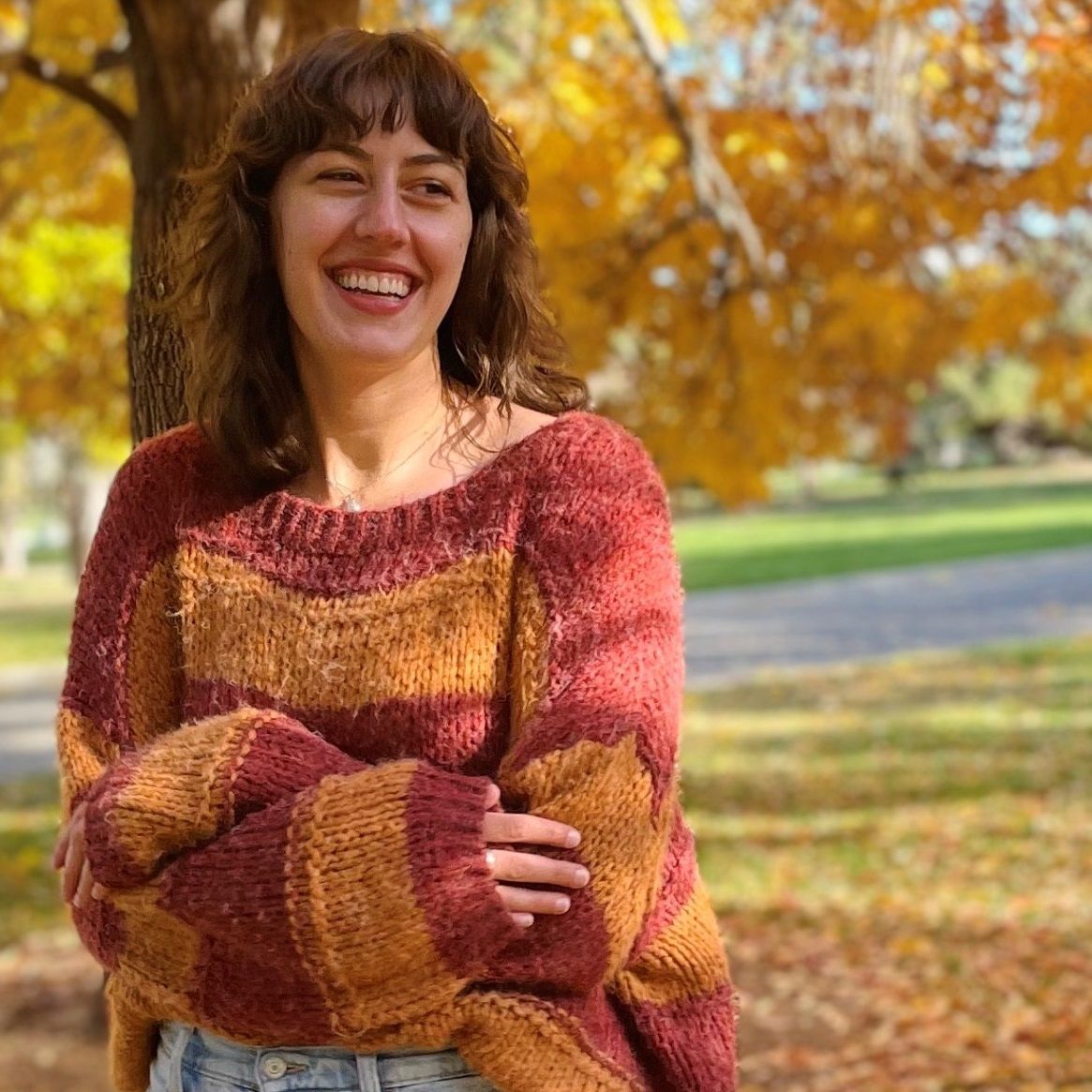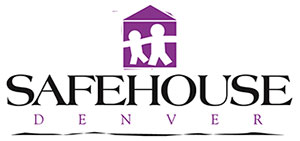
Welcome back to our regular series: the Supporter Spotlight! Every member of our community has a story… a reason why the work of SafeHouse Denver means so much.
This month, we turn the Spotlight inward to share how Sarah Budisavljevic, one of our Advocates, makes a difference for survivors on a daily basis.
Tell us a little more about yourself.
Sarah is originally from Canada, and she grew up near Niagara Falls. After moving to Colorado as a teenager and attending high school in Pueblo, she later settled in the Denver area. When she’s not spending time with her partner and their two cats, Sarah enjoys a mix of indoor and outdoor activities like reading and gardening.
She’s also recently discovered a new hobby: birding. You may not think the Denver metro area would be a popular nest for more exotic birds, but many will pass through town thanks to migration patterns. Equipped with her new pair of binoculars, Sarah has spotted pelicans, herons, raptors and more near the lake by her house. “Once you start looking, you can’t stop looking,” she laughed.
What brought you to SafeHouse Denver?
Sarah has previously volunteered with survivor-centered organizations like a sexual assault crisis hotline and a community AIDS project. “I’ve always been drawn to working with survivors,” she explained. “I’ve always found it to be important and impactful and really in line with my values.” As part of her master’s program in social work, Sarah completed an internship with SafeHouse in 2019. When a full-time staff position became available in 2020, she embraced the opportunity. In addition to her work as an Advocate, Sarah also supervises the current roster of interns and spearheads the agency’s newly expanded youth programs.
What does the mission of SafeHouse mean to you personally?
“I just feel really honored to be able to do this work and walk alongside survivors” as they pursue their goals, Sarah said. She also mentioned a quote by author Anaïs Nin that influences her approach to advocacy: “You cannot save people. You can only love them.” Using this empowerment-based philosophy builds trust with her clients because they are able to express their needs and guide their own journey. Sarah feels humbled when they value that bond to confide in her and have those breakthroughs along the way.
What do you wish more people knew about domestic violence?
A common misperception about domestic violence is that it’s a single behavior or event, but Sarah is quick to point out that abuse creates a constant state of fear and stress for the survivor over long periods of time, which continues to perpetuate the trauma even when nothing physical is happening.
Even more troubling is that the majority of domestic violence is technically legal until physical abuse becomes a factor, so many perpetrators work within the law to maintain power and control psychologically without being discovered. “For me, that really shows that healing from domestic violence has to come from community care,” Sarah said, encouraging people to ask themselves: “How do we listen to survivors and help them pursue what justice means to them?”
What advice do you have for people who want to get involved with our mission?
Domestic violence is a complex issue, and a helpful way to support survivors is to understand the reality of their situations. “Do your research,” Sarah said. “Look up definitions of domestic violence and understand how the cyclical nature of an abusive relationship can affect survivors' behavior. Survivors may act in ways that can be hard to understand, but working with survivors means trusting that they know best how to protect themselves.” She referred to SafeHouse’s many resources, notably the 24-Hour Crisis & Information Line, to evaluate the most effective responses to those circumstances.
Another consideration to keep in mind is retaining that essential autonomy and empowerment for the survivor to avoid perpetuating the same behaviors they have been experiencing. “In an abusive relationship, the survivor’s choices are constantly being taken away. In supporting a survivor, you never want to take away their choices,” Sarah summarized. “Allow and trust that they know what’s best for themselves. You are not in their position, so you just need to support them no matter what, through whatever choices they make.”
If you or someone you know is experiencing domestic violence, the first step to access our services is calling our 24-Hour Crisis & Information Line at 303-318-9989. Talk with one of our passionate, dedicated Advocates today to find the support and resources that will empower your journey of hope and healing.

